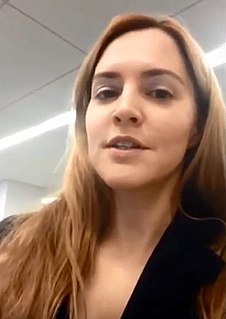A Quote by Octavia E. Butler
Related Quotes
At Princeton I wrote my junior paper on Virginia Woolf, and for my senior thesis I wrote on Samuel Beckett. I wrote some about "Between the Acts" and "Mrs. Dalloway'' but mostly about "To the Lighthouse." With Beckett I focused, perversely, on his novels, "Molloy," "Malone Dies," and "The Unnamable." That's when I decided I should never write again.
I wrote seven Myron Bolitar novels in a row, and I never want to write a Myron book where he just solves a crime. Every one of them I want to be personal, and I want him to grow and change. The problem with that is, it makes the series limited, you can't write a series where a guy is always going through some kind of crisis.


































